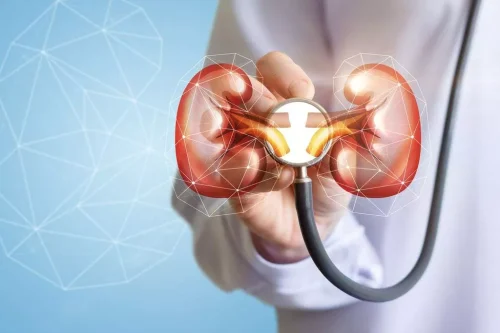Alcohol misuse at an early age increases the risk of developing AUD. Genetics or a family history of alcohol misuse increases that risk as well. Childhood trauma, mental health issues, and stress can also lead people to begin drinking or drink more than usual. WHO works with Member States and partners to prevent and reduce the harmful use of alcohol as a public health priority. Both the volume of lifetime alcohol use and a combination of context, frequency of alcohol consumption and amount consumed per occasion increase the risk of the wide range of health and social harms.
Content Licensing
A heavy drinking binge may even cause a life-threatening coma or death. This is of particular concern when you’re taking certain medications that also depress the brain’s function. Many people with alcohol use disorder hesitate to get treatment because they don’t recognize that they have a problem. An intervention from loved ones can help some people recognize and accept that they need professional help.
Risk factors for alcohol use disorder
This amount of alcohol will begin to reach toxic (poisonous) levels. This will leave you feeling badly dehydrated in the morning, which may cause a severe headache. The alcohol also impairs the cells in your nervous system, making you feel lightheaded and adversely affecting your reaction time and co-ordination. Alcohol is a powerful chemical that can have a wide range of adverse effects on almost every part of your body, including your brain, bones and heart. Alcohol disrupts normal brain function, leading to lowered inhibitions, impulsive behavior, and difficulty focusing or making decisions. The frontal cortex is the brain’s center for higher-order functions like planning, decision-making, and impulse control.
CAR-T immunotherapy for prostate cancer?
If your body can’t manage and balance your blood sugar levels, you may experience greater complications and side effects related to diabetes. Drinking too much alcohol over time may cause inflammation of the pancreas, resulting in pancreatitis. Pancreatitis can activate the release of pancreatic digestive enzymes and cause abdominal pain. “Excessive alcohol consumption can cause nerve damage and irreversible forms of dementia,” Dr. Sengupta warns. The morning after a night of over-imbibing can cause some temporary effects on your brain.
Excessive alcohol use
For example, it may be used to define the risk of illness or injury based on the number of drinks a person has in a week. Harmful use of alcohol is accountable for 6,9 % and 2.0% of the global burden of disease for males and females respectively. Alcohol is the leading risk factor for premature mortality and disability among those aged https://ecosoberhouse.com/ 20 to 39 years, accounting for 13% of all deaths in this age group. Disadvantaged and especially vulnerable populations have higher rates of alcohol-related death and hospitalization. Certain factors may increase your chances of experiencing alcohol use disorder. Alcohol withdrawal can be difficult and, in some cases, life threatening.
Short-Term Effects of Alcohol on the Body
- The toxic effects of alcohol overwhelm the body and can lead to impairment and some even more serious medical side effects, including death in severe cases.
- The short-term effects of alcohol develop quickly—within minutes after your first drink—impacting mood, coordination, speech, memory, and behavior.
- Alcohol use can factor into mental health symptoms that closely resemble those of other mental health conditions.
Long-term alcohol use can change your brain’s wiring in much more significant ways. That’s because your body already has processes in place that allow it to store excess proteins, carbohydrates and fats. So, your system prioritizes getting rid of alcohol before it can turn its attention to its other work. Cirrhosis, on the other hand, is irreversible and can lead to liver failure and liver cancer, even if you abstain from alcohol. Dr. Sengupta shares some of the not-so-obvious effects that alcohol has on your body. For full access to this pdf, sign in to an existing account, or purchase an annual subscription.
After drinking 8 to 9 units of alcohol, your reaction times will be much slower, your speech will begin to slur and your vision will begin to lose focus. After a night of drinking, you may have gaps in memory, in which you recall some details from a situation or event but forget others. Alcohol’s impact on memory and consciousness is based on its effect on the hippocampus, the part of the brain that controls memory and learning. Loss of coordination (ataxia) is a common short-term effect of alcohol and is linked to how alcohol affects the brain’s cerebellum. The cerebellum is the brain’s control center for movement, balance, and coordination.
To purchase short-term access, please sign in to your personal account above. Regularly drinking more than 14 units of alcohol a week risks damaging your health. This kindling effect can also occur after chemical stimulus to the brain or body, such as anti-convulsant medication.
Long-term effects
This article discusses the physiological and psychological effects of alcohol and how to change your drinking habits. Alcohol use disorder (AUD) is a chronic brain disorder that makes it difficult to control alcohol use, even when it’s causing problems. Drinking alcohol during pregnancy can lead to symptoms of fetal alcohol spectrum disorders (FASD). FASD can cause a range of neurodevelopmental and physical effects in the child after birth.
Want to stop harmful drinking? AA versus SMART Recovery
- This article discusses everything you need to know about the short-term effects of alcohol.
- Once in the bloodstream, alcohol affects every organ in the body, including your brain.
- The effects of alcohol can range from mild, such as skin flushing, to more severe symptoms such as passing out or vomiting.
- Impulsive behaviors can include making poor financial decisions (e.g., spending rent money on a round of drinks for your friends) or engaging in risky sexual behaviors (e.g., condomless sex).
The bottom line is that alcohol is potentially addictive, can cause intoxication, and contributes to health problems and preventable deaths. If you already drink at low levels and continue to drink, risks for these consequences of alcohol issues appear to be low. The evidence for moderate alcohol use in healthy adults is still being studied. But good evidence shows that drinking high amounts of alcohol are clearly linked to health problems.





